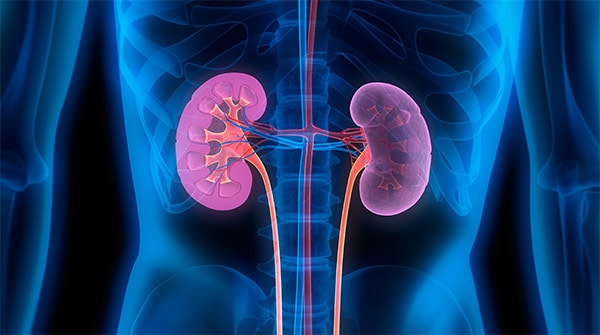The following is quoted from the January 17th issue of the C.A.R.P. Action Newsletter
You aren’t alone if you can’t remember the last time you thought about your kidneys. But thinking proactively about your kidney health can mean one less thing to worry about. The next time you see your doctor ask them for kidney screens: a simple blood (eGFR) and urine test (uACR) (see box). |
Estimated Glomerular Filtration Rate (eGFR) A blood test that assesses kidney function and helps to determine presence of kidney disease and stage by measuring how effectively tiny filters (Glomeruli) in your kidneys clean the toxins and waste in your blood. A urine test that assesses kidney damage by determining whether albumin, a type of protein normally found in the blood, is in your urine. |
Here’s why. Chronic kidney disease (CKD) is highly prevalent, impacting 1 in 10 people globally.1 It’s also highly underdiagnosed: fewer than half of all CKD cases are diagnosed.2 Last but certainly not least, it is now highly manageable – but like so many progressive diseases, particularly at an early stage. |

In case you need a Kidney 101 review, here’s what kidneys do. The bean shaped organs “clean” your blood by removing waste from the body through your urine, help make red blood cells, and regulate blood pressure. Every minute, your kidneys filter about one litre of blood.3 When your kidneys are not functioning well it can have detrimental impacts on your whole body and eventually lead to dialysis and/or transplant.
Who is at risk for kidney disease? Hypertension and diabetes are responsible for more than half of all CKD cases and cardiovascular disease is also a significant risk.4 Other factors include older age, family history, obesity, and substance abuse.5
Unlike diseases that reveal themselves by signs and symptoms fairly early on, CKD often does not. Signs and symptoms such as increased urination, insomnia and fatigue, poor appetite, shortness of breath, muscle cramps, nausea, or dry or itchy skin6 often do not appear until kidney disease has progressed.
When CKD occurs, it can range from mild to severe and in some cases, lead to kidney failure. Like many diseases, patient outcomes are not as positive when the disease is found later. That’s because once kidney function is lost you can’t get it back. Fortunately, new treatments that are available can slow disease progression, preserve kidney function, and improve patient outcomes. Early intervention has never been so easy nor so important.
KDIGO,7 a non-profit organization focused on kidney disease clinical practice guidelines, recommends screening in those with hypertension, diabetes, or cardiovascular disease as well as those with other factors that increase risk.8
Despite this, screening is simply not happening as often as it should, meaning that many Canadians have preventable disease that is progressing unnoticed. So, here’s a small 2022 resolution with potentially big impact: protect yourself and your loved ones by asking your doctor for an eGFR blood test and uACR urine test.
1 Hill NR et al. PLoS One. 2016 2 1. Tuttle KR et al. JAMA Netw Open. 2019;2:e1918169; 2. Ravera M et al. Am J Kidney Dis. 2011;57:71–77; 3. Ryan TP et al. Am J Med. 2007;120:981–986. 3 https://kidney.ca/Kidney-Health/Your-Kidneys/How-Kidneys-Work 4 Xie Y et al. Kidney Int. 2018;94:567-581 5 Shlipak MG et al. Kidney Int. 2021;99:34-47. 6 1. National Kidney Foundation. https://www.kidney.org/news/ekidney/august14/10_Signs_You_May_Have_Kidney_Disease; 2. Webster AC et al. Lancet. 2017;389:1238–1252. 7 Kidney Disease: Improving Global Outcomes 8 Shlipak MG et al. Kidney Int. 2021;99:34-47;